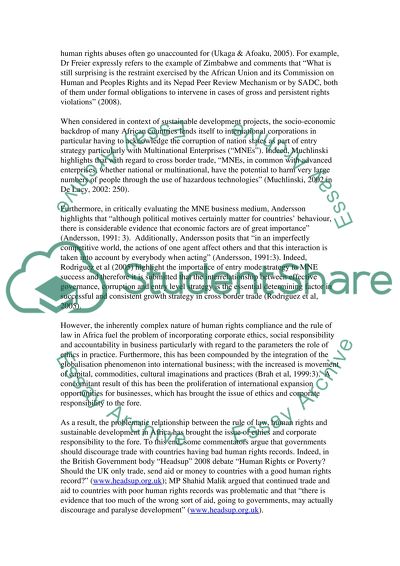Cite this document
(Human Rights and Sustainable Development in Modern Africa Research Proposal, n.d.)
Human Rights and Sustainable Development in Modern Africa Research Proposal. https://studentshare.org/macro-microeconomics/1558268-voiceless-cries-the-resource-anathema-a-critical-human-rights-approach-to-the-rule-of-law-sovereignty-and-sustainable-development-in-africa
Human Rights and Sustainable Development in Modern Africa Research Proposal. https://studentshare.org/macro-microeconomics/1558268-voiceless-cries-the-resource-anathema-a-critical-human-rights-approach-to-the-rule-of-law-sovereignty-and-sustainable-development-in-africa
(Human Rights and Sustainable Development in Modern Africa Research Proposal)
Human Rights and Sustainable Development in Modern Africa Research Proposal. https://studentshare.org/macro-microeconomics/1558268-voiceless-cries-the-resource-anathema-a-critical-human-rights-approach-to-the-rule-of-law-sovereignty-and-sustainable-development-in-africa.
Human Rights and Sustainable Development in Modern Africa Research Proposal. https://studentshare.org/macro-microeconomics/1558268-voiceless-cries-the-resource-anathema-a-critical-human-rights-approach-to-the-rule-of-law-sovereignty-and-sustainable-development-in-africa.
“Human Rights and Sustainable Development in Modern Africa Research Proposal”. https://studentshare.org/macro-microeconomics/1558268-voiceless-cries-the-resource-anathema-a-critical-human-rights-approach-to-the-rule-of-law-sovereignty-and-sustainable-development-in-africa.


